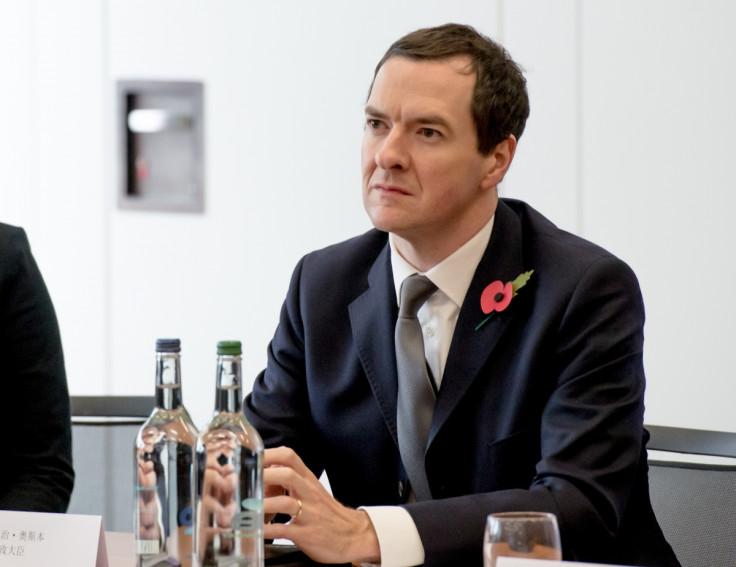George Osborne faces a popular front of tax credit cuts opponents

Chancellor George Osborne is facing what some commentators have called his poll tax moment. His attempt to slash billions of pounds from the tax credits bill in the name of deficit reduction is damaging the government politically amid howls of protest -- including from Conservatives.
The cuts to child and working tax credit will hit 4.6 million families across the UK. Around 3.3 million of those are in working households. According to the House of Commons library, in-work households will be on average £1,300 a year worse off. And this has brought out a rainbow coalition of government detractors.
Osborne insists that, when all of its changes to household incomes are taken into account, such as the cut to income tax for the lowest paid and the introduction of a £9 an hour National Living Wage for over-25s by 2020, many people will be better off overall.
And ministers want people to be less reliant on the state for their incomes. Instead of paying taxes and recycling their incomes through the state in the form of tax credits, they will be able to keep more of their pay in the first place.
However, the government's critics -- many from their own side of the political spectrum -- say tax credit cuts are an intolerable attack on household incomes of the working poor and does not reward work. Instead, they argue, it will go against the government's own much-vaunted policy of making work pay.
Other critics believe the child benefit cuts will push 200,000 more children into poverty. Some are calling for the cuts to be abandoned altogether, while others say the impact on the lowest earners should be mitigated -- either by removing them from the cuts altogether, or supplementing their incomes somehow else.
As the House of Lords prepares to vote on the controversial tax credit cuts, here are those who have come out against Osborne's tax credit cuts.
The usual suspects: Labour, Liberal Democrats, SNP, Greens
To different degrees, the main left-leaning parties all oppose George Osborne's tax credit cuts as they currently stand. John McDonnell, Labour's shadow chancellor, even offered not to criticise Osborne or make political capital out of any U-turns if he changed policy.
Tory backbenchers
"Conservative backbenchers David Davis and Zac Goldsmith have signed a cross-party motion calling on the government to mitigate the impact of tax credit cuts for low-paid workers," reported ITV News.
Another is the new Conservative MP Heidi Allen, who used her maiden speech in the House of Commons to make a passionate case against her party's tax credits policy because of the impact it would have on some of her constituents.
Half the Tory cabinet
According to a Telegraph report: Three cabinet ministers, another senior minister and a number of Conservative advisers privately expressed grave concerns over the chancellor's handling of the reforms. They warned that Mr Osborne's policy was being seen as 'penalising' the working poor and could turn into a poll tax-style error, undermining years of effort to dispel the image of the Tories as 'the nasty party'."
A Tory grandee
Nigel Lawson, a former Conservative chancellor, told BBC Radio 4: "You cannot remove these tax credits without people being worse off. The question is, who is going to be worse off?"
Lawson called for "tweaking" by Osborne of his policy "to make the burden of this rather less towards the bottom end of the scale, so that the people further up the scale have a slightly bigger burden".
Tory-supporting media
The Sun, which backed the Conservatives at the 2010 and 2015 general elections, has lashed out at tax credit cuts -- and is even campaigning against them. Even The Spectator is hostile to the cuts because of their impact on working people.
Ukip
Mark Reckless, Ukip's economics spokesman, called Osborne's tax credit cuts "contradictory" because they will take effect after April 2016, whereas the £9 National Living Wage will only come in by 2020 and the personal allowance threshold is also rising slowly. Instead, Ukip is calling for Osborne to phase in the cuts more slowly. And Ukip's only MP, Douglas Carswell, signed the same cross-party motion as David Davis and Zac Goldsmith.
Adam Smith Institute
The ASI is a right-wing, free market libertarian thinktank. And, counter-intuitively, it is opposed to Osborne's cuts to tax credits. Sam Bowman, deputy director at the ASI, wrote for IBTimes UK: "Tax credits do not subsidise firms, raising the minimum wage does not magic more money from firms to workers and even if it did it would hardly offset the tax credit cuts at all. Osborne is cutting one of the best kinds of welfare we have, and adding insult to injury with a minimum wage hike that may do more harm than good."
The Clergy
Two former Archbishops of Canterbury - Rowan Williams and George Carey - are among 63 peers, 13 of them from the crossbenches, who have signed a letter to the Observer opposing the cuts in their present form.
'At a time when nearly two thirds of children living in poverty are in working families, none of this can be right,' they said.
© Copyright IBTimes 2025. All rights reserved.






















